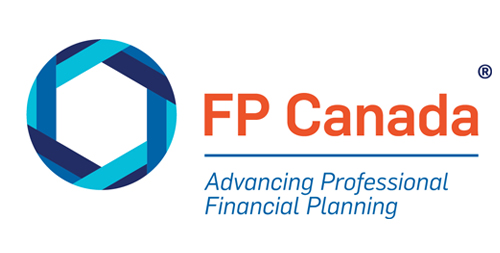
Progress Report 2022-23
IMAGINE 2030 is FP Canada’s vision of the future where all Canadians have access to professional financial planning that supports their diverse needs and where financial planning is a unified profession, recognized in statute and deemed essential by society.
Our ongoing efforts are focused on increasing awareness about the value and high standards of professional financial planning, taking action to explore the impact of technology on financial planning, enhancing the diversity of our students and financial planners to reflect all Canadians, helping consumers understand the benefits of financial advice that takes their whole lives into account, and adapting our certification pathways to meet the needs of aspiring financial planners and industry.
This report outlines the progress made during the first year of the Strategic Plan—the fiscal year ending March 31, 2023. Our successes have involved collaboration and engagement with both the profession and consumers, including our 2022 industry survey and our annual certificant survey that provided us with important insights about the value of our certification designations, FP Canada standards and the general state of the financial planning profession.
Our second annual IMAGINE 2030 survey also polled Canadians about their financial wellness and the challenges they face in accessing professional financial planning. The survey measures all aspects of financial health to provide the profession with vital information on how to help Canadians from all socioeconomic and cultural backgrounds achieve financial wellness. The
IMAGINE 2030 Progress Report suggests that some Canadians are still struggling with trust issues when it comes to professional financial planning, providing signposts for how the profession can build trust and increase access to planners for Canadians from all walks of life.
We’re proud of the hard work we’ve done to illuminate the importance of professional financial planning to Canadians, the steps we’ve taken to grow the profession, the efforts we’ve made to ensure our certification programs remain relevant, and much more. Read on for a more detailed look at how we’ve tackled our five strategic goals over the past 12 months.

Strategic Goal 1: Canadians have embraced and have confidence in financial planning as an important professional service on the path to financial wellness
FP Canada actively promotes the financial planning profession to a wide audience via various public-facing campaigns and initiatives. All highlight the value of professional financial planning to the public and its proven track record in helping Canadians achieve financial well-being.
- Our proprietary research, the 2022 Financial Stress Index, continues to illustrate the value of professional financial planning, showing Canadians who work with a financial planner are far less likely to cite money as the top source of stress in their life compared to those who don’t (15% vs. 39%).
- Together with the Institut québécois de planification financière (IQPF), we launched our Fintellect Initiative to explore the key question: How do we leverage new and emerging technologies to enhance the practice of professional financial planning and increase its accessibility for Canadians?
- We continue our core focus on our enforcement and professional standards to ensure all Canadians can have trust in the profession; this year the FP Canada Standards Council™ issued guidance to the profession on the use of the financial planning technology used to make their planning recommendations.
- We raised awareness of the importance of financial planning via our 23 Media Ambassadors—all CFP® professionals and QAFP® professionals, including representation from diverse groups—who promoted professional financial planning across the country and in their regions. Their efforts resulted in nearly 1,500 articles related to the value of financial planning, with 225 million impressions across the country.
- We invested in educating Canadians on the important role that professional financial planners play in improving consumers’ financial resilience and well-being via editorials and supplements in widely read Canadian publications, including the Globe and Mail.
- Amid our efforts to raise awareness about the profession, there was a 4.29 per cent increase in traffic to the FP Canada consumer website.

Strategic Goal 2: The profession operates in the public interest; is accessible and inclusive; is holistic and client-centric; and remains current and relevant to Canadian society
FP Canada has made strides to grow the financial planning profession, increase the diversity of the population of financial planners, and ensure the profession is guided by and acts in the best interests of clients. The FP Canada Standards Council is focused on the public interest and on ensuring the standards of the profession are relevant and meet the expectations of Canadians. This work is also supported by our external partnerships to promote financial planning as a dynamic career choice and our ongoing efforts to make the profession more accessible to Canadians from all backgrounds and cultures. In all these efforts, we’re laser-focused on making sure consumers are the primary priority.
- Our certificant and industry survey results indicate financial planners and firms consider FP Canada standards highly relevant, highlighting FP Canada’s value to the profession.
- Our Conduct Review Panel published guidance for CFP professionals and QAFP professionals related to disclosure requirements on conflict-of-interest and compensation issues, helping to ensure the profession always has their clients’ best interests at heart.
- We launched the Professional Education Accreditation Program for CFP® Certification to create a more direct post-secondary education pathway for students seeking FP Canada certifications; this provides students the opportunity to complete technical and professional education and meet the post-secondary education requirements within their undergraduate programs, so they’re qualified to write the certification exam upon graduation.
- We worked closely with post-secondary academic institutions to ensure professional financial planning is being viewed as a viable career choice for graduates and that students are aware of the value of FP Canada certifications. Initiatives included a partnership with Maclean’s magazine to promote the profession to students and the launch of a microsite aimed at students to amplify that promotion. The microsite, Become a Financial Planner, provides information on the profession for post-secondary students.
- Our annual Financial Planning Conference held during Financial Planning Week brought together hundreds of financial planners, industry leaders, regulators, and educators, and had record levels of attendance with 18 sponsors (+3 from 2021) and more than 2,000 attendees (+27% from 2021). Of the attendees, 94% said the conference was highly relevant to the profession and 97% said they would likely attend again next year.

Strategic Goal 3: Industry embraces professional financial planning, always in the client’s best interest
This year, FP Canada made important strides towards ensuring our certifications and pathways align with the needs and expectations of industry. Throughout the year, we worked closely with our industry partners on various projects and initiatives, consulting
with them regularly on education programs, paths to certification and other industry needs.
In consultation with industry, we laid the groundwork for a reimagined QAFP Certification to make the path to becoming certified more streamlined,
more accessible, better aligned with the specific educational needs of future QAFP professionals and focused on planning competencies and competency expectations of QAFP professionals in practice.
We also took steps to revitalize the
QAFP Professional Education Program to ensure certificants are client-ready by helping them understand key behavioural factors that affect client decisions; it includes an innovative new feature—a live “discovery” assessment.
- We conducted a survey of QAFP professionals that determined 93% are satisfied with their decision to pursue financial planning as a career; CFP professionals reported they’re very satisfied with their career in financial planning and with their financial planning certification, with 94% responding ‘very satisfied’ or ‘satisfied’ for both questions.
- To ensure FP Canada’s certifications continue to reflect the competencies that Canadians require of professional financial planners, we completed a review and validation of the Financial Planning Body of Knowledge and the FP Canada Standards Council™ Competency Profile. These updates formed the foundation for the subsequent reimagined QAFP® Certification.
- We committed to making all FP Canada education programs more accessible by investing in the development of technical education.
- We created opportunities and pathways for individuals who do not have a post-secondary degree to access and qualify for CFP Certification. The new pathways provide a route to certification for non-degree holders who have 10 years of qualifying work experience and meet all other requirements for CFP Certification. Additionally, a path was approved for QAFP professionals in good standing for a minimum of five years and who successfully complete the QAFP Certification Bridge Path to CFP Certification.
- We developed a digital tool to enable professional financial planners to build part of or a complete Terms of Engagement Letter, or to update existing Terms of Engagement documents, by picking and choosing from a number of sample clauses covering all stages of a financial planning engagement. Thousands of financial planners certified by FP Canada have used the tool and a large majority of them have given it high marks for its design and useability.
- In April, FP Canada and IQPF jointly published the annual Projection Assumption Guidelines—a key tool for financial planners and the broader industry to ensure long-term financial projections for clients are based on sound assumptions that are free from bias. Feedback from CFP professionals, QAFP professionals and industry partners suggests ongoing strong satisfaction with this resource.
- The new quarterly President’s Roundtable served as a key forum for industry engagement as President & CEO Tashia Batstone sat down with senior financial planning executives to discuss topics impacting the financial planning profession.
- We held the first annual Dialogue meeting with compliance leaders, financial service regulators and industry professionals to brief them on the latest standards, compliance obligations and title protection developments.

Strategic Goal 4: FP Canada leads the evolution of financial planning as a unified profession that all Canadians can confidently rely on to deliver at consistently high standards
FP Canada remains heavily focused on leading the evolution of the financial planning profession, in the interest of consumers. This includes ensuring high standards for professional financial planners, providing thought leadership on issues impacting financial planning, investing in the people, systems and technology needed to ensure FP Canada is well-positioned to support the profession, and much more. We’re also making efforts to ensure our own organization is reflective of the Canadian population at large via our diversity, equity and inclusion initiatives.
- In May 2022, as part of our continuous effort to ensure CFP professionals and QAFP professionals are held to high standards of professionalism and ethical conduct, the Standards Council released its revised Standards of Professional Responsibility. The changes promote greater transparency for clients by requiring all disclosures related to conflicts of interest, compensation, referral arrangements and others, be made in writing to the client. The changes also serve to ensure CFP professionals and QAFP professionals are ensuring their communications are not only timely and thorough, but accessible and understandable to the client.
- Our 2022 Standards Council Report provided insights on the many responsibilities related to protecting clients’ best interests, including managing conflicts of interest, to ensure financial planning professionals meet FP Canada’s high standards of competence and professionalism and foster trust in professional financial planners.
- Our Fintellect Initiative is examining the impact of technology on the profession to ensure the central focus of these emerging technologies is the consumer.
- FP Canada and IQPF renewed their Memorandum of Understanding and committed to collaboration on education, exploring opportunities for mutual credential recognition and joint work on policy issues, including collaborative meetings with federal decision-makers to make financial planning more accessible to Canadians.
- Our industry survey confirmed that stakeholders consider us an authority within the financial planning profession, and influential when discussing issues pertaining to financial planners.
- Our inaugural Certification Celebration recognized all those who obtained certification in 2021; almost 90% of attendees said they felt a sense of achievement and celebration.
- We continued to be the first point of contact for media on matters related to financial planning, with several FP Canada mentions a month across an array of multi-platform news outlets, resulting in more than a million impressions monthly.
- Internally, we launched a Diversity, Equity and Inclusion Employee Resource Group to ensure our organization promotes DEI in everything we do and is taking tangible action to become a more diverse and inclusive workplace that is positioned to attract and support the development of a more diverse population of financial planners.
- FP Canada was recognized as a Great Place to Work® certified organization by the Great Place to Work Institute® Canada, a research and management consultancy firm and global authority on workplace culture, after our employees indicated high levels of job satisfaction.
- FP Canada embarked on the first phases of a multiyear digital transformation. As part of this initiative, we implemented a new Information Security Management System to enhance data management and security. We embarked on a strategic review of our websites and started work on updates to better support the broader requirements of the organization. We also invested in new finance, HR systems and business analytics capabilities to ensure the organization continues to increase the efficiency and effectiveness of our business processes.

Strategic Goal 5: Governments recognize financial planning as a profession and support its broad accessibility, through appropriate policy and regulatory frameworks
In 2022-2023, FP Canada actively engaged with government, consumers and regulatory officials across the country on the need for title protection legislation for financial planners in the interest of clarity and protection for all Canadians. We also focused on raising awareness among federal policymakers on the financial resilience challenges facing Canadians and explored potential solutions for improving the accessibility of financial planning advice.
- FP Canada was approved as a credentialling body, and CFP Certification and QAFP Certification were approved as financial planning credentials in Ontario, by the Financial Services Regulatory Authority that oversees title protection in the province.
- We continued to advocate for strong regulations in Saskatchewan, which passed title protection legislation. In other provinces, we voiced the need for this legislation, and in June 2023, New Brunswick became the latest province to pass title protection legislation.
- We promoted the benefits of policy measures to policymakers in Ottawa to consider the benefits of financial planning to low- and middle-income Canadians.
- In early 2023, we partnered with the StrategyCorp Institute of Public Policy and Economy to launch a white paper on planning for resilience that articulated the case for a financial planning tax credit (which has been endorsed by the Canadian Chamber of Commerce). The paper found professional financial planners are uniquely placed to promote financial resilience.
- FP Canada was recognized as an “early adopter” of the Revised National Financial Literacy Strategy by the Financial Consumer Agency of Canada.


